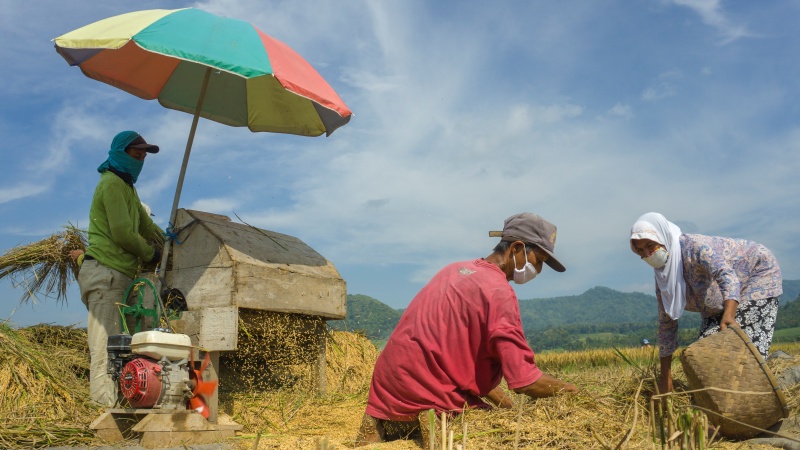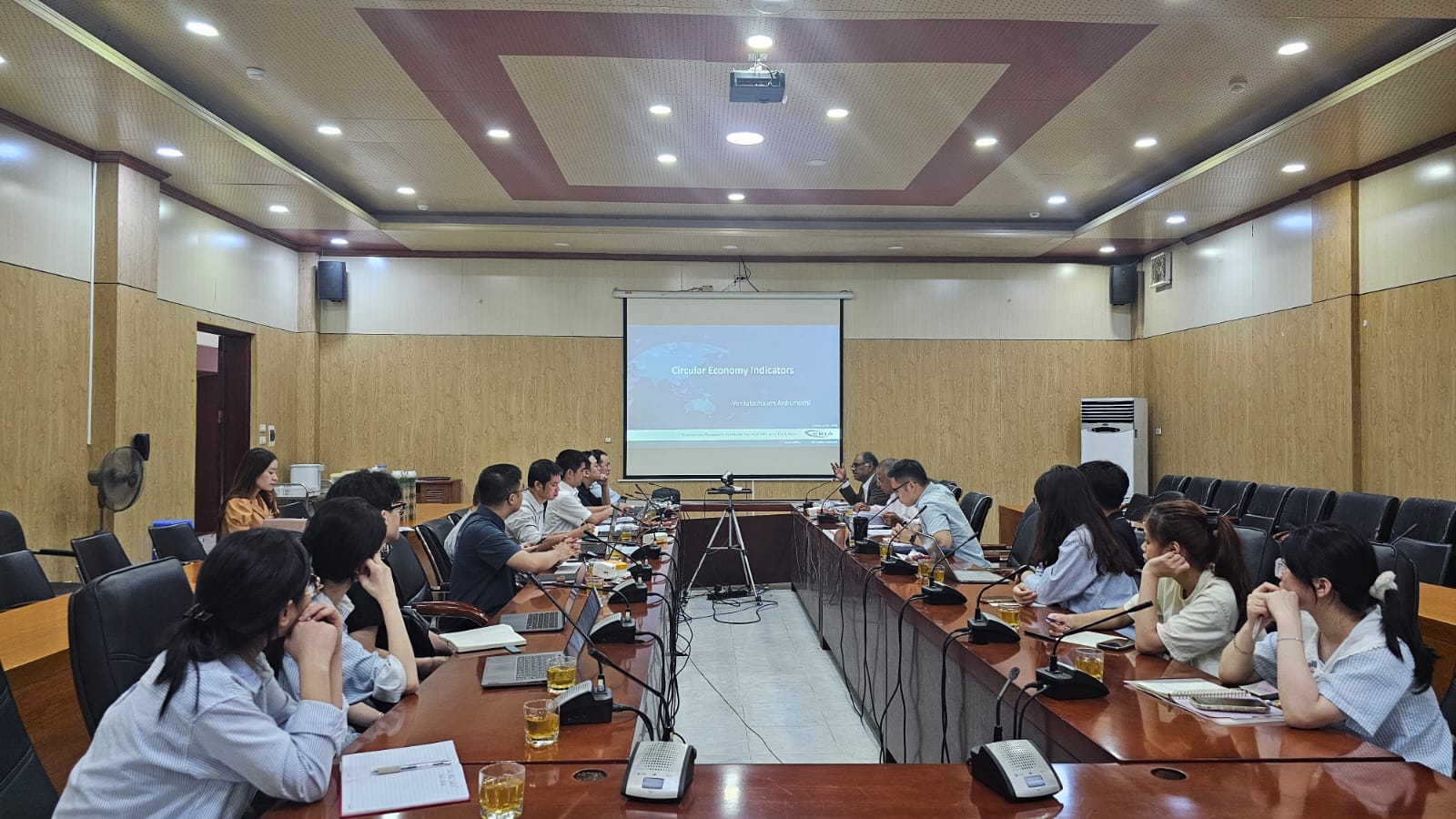ERIA Co-organises Webinar on Shaping the Right Policies for Southeast Asia’s Economic Recovery in the New Normal
Share Article:
Print Article:
Jakarta, 28 September 2020: The Economic Research Institute for ASEAN and East Asia (ERIA), in collaboration with the University of Indonesia and Elsevier, hosted a webinar on the topic of ‘South East Asia Economy Riding the New Normal: What Research Shows.’ More than 900 participants across the Asia-Pacific joined the webinar which sought to engage in active discussions on how Southeast Asia should come to terms with the COVID-19 pandemic.
ERIA’s Lead Advisor (Southeast Asia Region), Dr Lili Yan Ing, was one of two speakers at the virtual event alongside Vid Adrison, Ph.D., Head of Economics Department, Faculty of Economics and Business at the University of Indonesia. The Consumer Consultant for Elsevier Asia, Johan Jang served as the event moderator.
In her presentation, Dr Ing underlined the need for national and regional governments to establish stable macroeconomic conditions by ensuring a low account deficit and optimal public debt to maintain ample fiscal space. There are two types of stimuli to focus on namely, fiscal stimulus and monetary stimulus.
Fiscal stimulus comprises healthcare, social safety nets, tax incentives, and economic recovery programs. On the other hand, monetary stimulus includes initiatives such as reducing interest rates, reducing the reserve ratio of banks, loosening liquidity, and buying back government bonds.
‘On a national level, the main priorities are health and education in addition to trade and investment strategies. Regionally, ASEAN must work together in a real and solid manner instead of only forging commitments. ASEAN can maintain their focus on the health sector by ensuring a steady and affordable supply of health products is available. It can additionally secure sufficient food supplies across the region, shortening import-export and investment procedures, implement an automatic licensing system as well as enhancing its digital-based capacity and activity’ explained ERIA’s Dr Ing.
Following on from Dr Ing’s presentation, Vid Adrison, Ph.D. shared how understanding the characteristics of the COVID-19 crisis and how that translates to economic actors can be immensely useful to shape the right policies.
‘This crisis is different than previous crises where the increased risk of the COVID-19 virus transmission has significantly affected human activities and caused a negative effect on the economy. The wrong policies can cause a significant number of lives lost and a poor economic performance. Stopping the COVID-19 pandemic is crucial to achieving economic recovery. Saving lives is saving the economy’ concluded Vid Adrison, Ph.D.
Through experts sharing their analyses and thoughts on how to best navigate the COVID-19 pandemic, the expectation is for academics and professionals to work together to strengthen the road to regional economic recovery. The webinar revealed that although the current crisis has triggered several unplanned challenges for the Southeast Asian region, it has also highlighted opportunities that ASEAN can harness to come out stronger in the new normal.
Passcode: 2aC?DlWN








